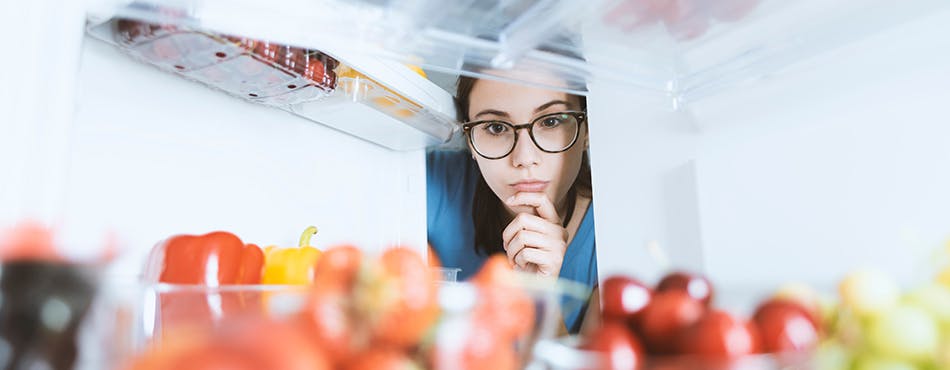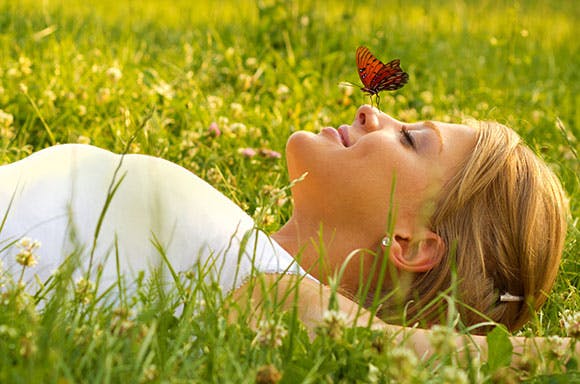Back to Lip Care articles

What Are the Best and Worst Foods for Cold Sores?
Diet plays a role in your lip health and overall health. If you are prone to cold sores, the types of food you eat on a daily basis may impact how you experience symptoms. You may have read about foods for cold sore treatment or foods that cause cold sore outbreaks. However, just because you get cold sores doesn’t mean you need to rethink your diet entirely. Cold sores are a result of many different factors, and a single food won’t trigger or treat an outbreak. To put it simply: diet is just one part of the lip health equation.
Learn more about foods for cold sores below.
Diet, Immunity, and Cold Sores
If you get cold sores, eating a nutritious, well-balanced diet to support your immune system is important. The herpes simplex virus (HSV-1) causes cold sores.1 Symptoms of the virus, such as painful blisters around the mouth, may reappear throughout the years. This is because the virus lies dormant in nerve cells in your skin, even if you don’t see any cold sores when you look in the mirror.
Viral infections and fevers are a common cause of cold sores.2 In addition, people with weakened immune systems from certain conditions are most at risk for complications from the herpes simplex virus.3 Taking steps to support immunity, such as eating a healthy diet, is important for your lip health and overall health.
Although dietary recommendations vary from person to person, there are some do’s and don’ts on foods to eat to support immune health:4

DO's
Eat a varied, nutritious diet complete with fruits, veggies, lean protein, whole grains and
other good-for-you foods.
Eat foods that provide essential nutrients to help support immune function. Some of these essential nutrients include vitamin C, vitamin D, zinc, iron and protein.
Eat foods to help support gut health, such as high-fiber foods or foods with probiotics and prebiotics.

DON'TS
Avoid ultra-processed foods, which can negatively impact the immune system.
Limit your intake of refined sugar, which may have a negative effect on gut health and immune health.
What Are the Best Foods for Cold Sores?
Honey, lemon, rhubarb and beyond: many foods are touted for being a cure for cold sores. Unfortunately, there is no magic food you can eat to prevent you from ever developing a cold sore ever again. Likewise, you won’t find a food that can make a cold sore disappear immediately. Cold sores are a tricky condition to manage. Sometimes, even with effective treatment, cold sores need additional time to heal.
Luckily, eating a healthy diet can still help support cold sore recovery. As you read above, nutrition helps supports immune health, which in turn can help with cold sore outbreaks. A nutritious diet offers other benefits as well. Eating well can give you energy, improve your mood and help you sleep better—all of which is important when you have cold sore and feel less than 100%.
Some studies report that L-lysine, an amino acid commonly found in food, is an effective treatment for cold sore infections.5 Foods with lysine include chicken, salmon, beans, tofu, and more. You may hear people suggest to eat these foods to get rid of cold sores, but take this advice with a grain of salt. Research is contradictory as to whether or not lysine, either from food or a supplement, can help cold sores. However, talk to your doctor if you’re interested in more information. Besides, you may want to eat some of these foods with lysine for nutritional benefits or even great flavor—cold sore benefits aside.
Cold Sore Diet: What Foods to Avoid
What are the worst foods for cold sores? Cold sores can be uncomfortable and even painful. Tingling and itching, blisters, oozing and crusting are some symptoms you experience with cold sores.6 When it comes to food, you will want to avoid foods that will cause further discomfort. Acidic foods and drinks can irritate the cold sore womb.7 You may want to avoid items like citrus fruits, tomatoes, juices, and foods with vinegar like salad dressing until your outbreak heals. Stay away from spicy foods, carbonated drinks or any other causes of irritation.
Be careful about foods with L-arginine. Arginine is an essential amino acids that helps your body build protein.8 Foods with arginine include certain types of meat, whole grains, beans and dairy products. According to research, too much arginine may potentially trigger the herpes virus and cause cold sores. 9, 10 Talk to your doctor if you have any questions about foods with arginine.
We hope you found this article about food and sores helpful. Learn more about eating for lip health today.
By clicking the link(s) above, you will be taken to an external website that is independently operated and not managed by GSK. GSK assumes no responsibility for the content on the website. If you do not wish to leave this website, do not click on the links above.





